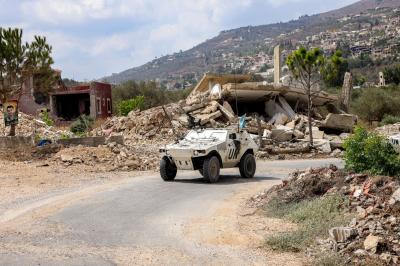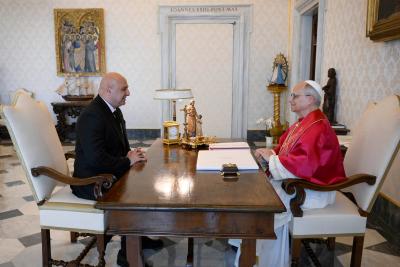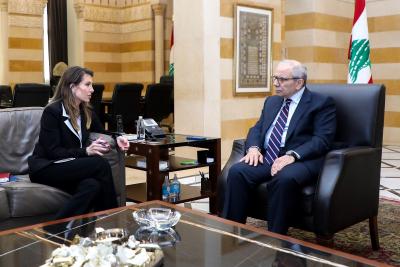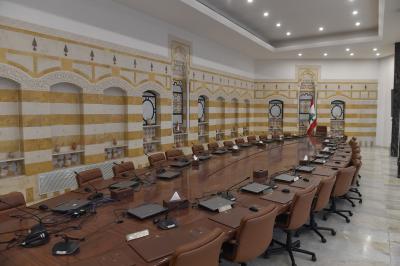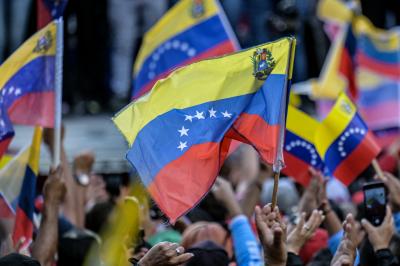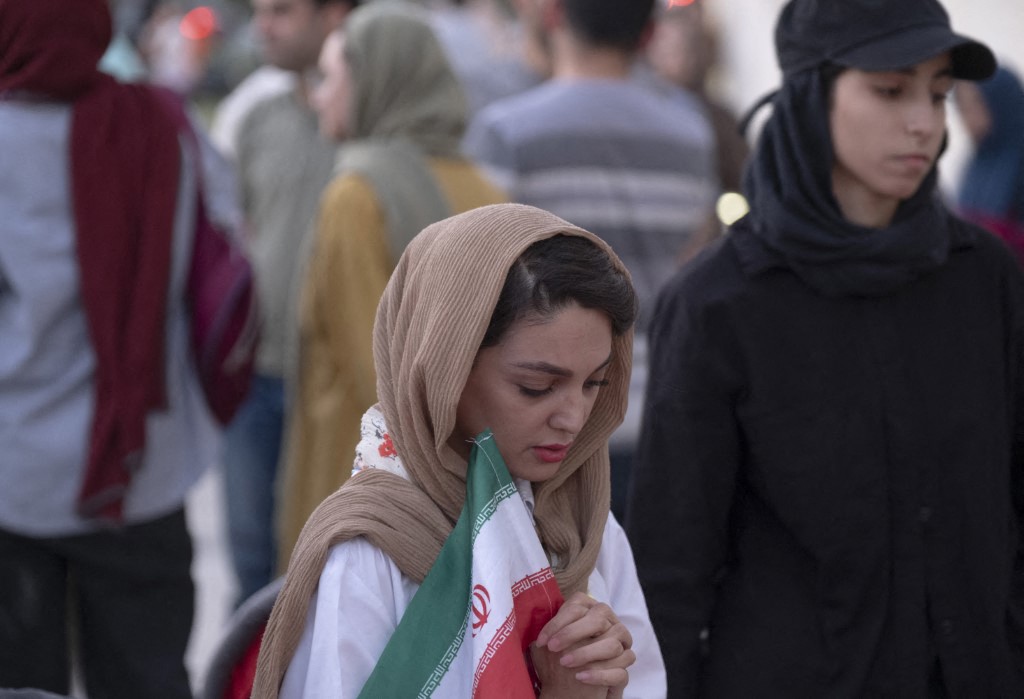Lebanon spent days holding its breath as the Israeli war on Iran unfolded. The situation grew more tense when "Hezbollah" hinted that it would not remain neutral, a stance that felt like a hand on the trigger, signaling the countdown to escalation—especially after Israeli Prime Minister Benjamin Netanyahu threatened to assassinate Iran’s Supreme Leader, Ayatollah Ali Khamenei. Warnings poured into Lebanon against joining the war, the latest of which came from U.S. envoy Thomas Barack, who cautioned that if "Hezbollah" intervened, Israel could resume the war from where it left off.
The conflict intensified when the U.S. struck Iranian nuclear facilities. Then, in an unexpected twist, the war abruptly ended following a balance of retaliatory strikes between Iran, Israel, and the United States. Ironically, "Hezbollah," which had been on high alert from within Lebanon, received the news of the war’s end just like everyone else—with relief. It seemed to exhale, cautiously optimistic.
"Hezbollah," in alignment with the Iranian view, considers the Islamic Republic to have emerged victorious. Iran succeeded in striking deep inside Israel in a war that could have exhausted it were it not for American intervention. Among the war’s objectives were toppling the Iranian regime and destroying its nuclear infrastructure. The first goal failed—Iran’s leadership not only endured but emerged stronger, bolstered by popular support in the face of Israeli aggression. As for the nuclear facilities, while damaged, they weren’t destroyed. Enrichment efforts may be delayed, but not derailed. Iran has since declared that it will no longer cooperate with the International Atomic Energy Agency.
On the other side, Israel walked away without clear gains—and arguably, with an internal political setback—despite a message of support from US President Donald Trump to Netanyahu, applauding Israel’s involvement in the war.
In a startling turn, this brutal war ended through what appears to be an Iranian-American-Qatari arrangement, in the absence of any formal ceasefire agreement or political understanding. This leaves the door open for future conflict development, especially since no binding deterrent was established against further Israeli action. It was widely believed Iran would push for a broader agreement encompassing Gaza and Lebanon, but that never materialized.
Lebanon was fortunate: the war ended without "Hezbollah’s" involvement. Even more promising is the party’s apparent willingness to consider the U.S. proposal delivered by envoy Barack, which outlines a conditional Israeli withdrawal from Lebanon. A copy of the proposal has been handed to "Hezbollah" and is currently under review by Lebanon’s top three officials in hopes of reaching a unified national stance.
This could mark a historic moment: "Hezbollah" might, for the first time, stand behind the state rather than in front of it. The party seems ready to engage in dialogue about limiting arms to state control, albeit under a different framing. Still, willingness to negotiate exists—and "Hezbollah" had previously accepted the principle of dialogue on its weapons.
Just as Iran aligned itself with U.S. demands to end the war and coordinated its missile strikes from Qatari territory in advance as a signal to Washington, will "Hezbollah" keep the door to dialogue open in Lebanon?
Lebanon welcomed the war’s end with relief and now watches closely to see how "Hezbollah" will act. The group is now expected to respond to the U.S. proposal, which insists on exclusive state control over arms as a condition for Israeli withdrawal. The proposal also lays out trust-building steps, outlines the Lebanese Army’s future role, and is backed by international willingness to support its deployment along the border with Israel.
The brief war ushered in a new reality in the region. Even if "Hezbollah" views the outcome as a win for the Iranian regime, this victory will not restore the “Axis of Resistance” to its previous standing. The region is now entering a phase of agreements, spearheaded by the Trump administration. Lebanon is expected to play a role in this phase, provided it implements UN Resolution 1701, disarms non-state actors, and begins reconstruction and recovery after Israel’s withdrawal.
Yet postwar Lebanon still lacks a clear vision for what lies ahead. The challenge goes beyond disarming "Hezbollah." It also encompasses state reform and reconstruction. The war may be over, and the region may be entering a new U.S.-Iranian era, but Lebanon remains without a comprehensive plan—from disarmament to reform to rebuilding. This ambiguity could prompt the U.S. to disengage, as envoy Barack hinted when he said: “Take advantage of Trump’s interest in Lebanon before his patience runs out and U.S. priorities shift elsewhere.”
While the region heads toward de-escalation, diplomacy, and agreements, Lebanon drifts in uncertainty—without governance or a functioning state—reacting passively to unfolding events and lacking a clear path forward.
Now, the ball is in "Hezbollah’s" court. Will it support a state that can protect its devastated constituency—those exhausted by Israel’s recent strikes on Lebanon—or will it continue to leave them displaced, excluded from the benefits of stability and international aid?
Lebanon has often found itself as a passive observer, a blind spectator. This time, it may finally have a chance to engage constructively.
As veteran politician Walid Jumblatt sated, “I worked on centralizing and handing over the Socialist Party’s weapons to the state. Today, a new chapter has opened in the Middle East.” He added, “In this round, Israel and the West—alongside the U.S.—emerged victorious,” calling on all parties to turn in their weapons. This may be the beginning of a pivotal shift. Will "Hezbollah" follow, leveraging its flexibility and propelled by Iranian encouragement?
Please post your comments on:
[email protected]
 Politics
Politics
